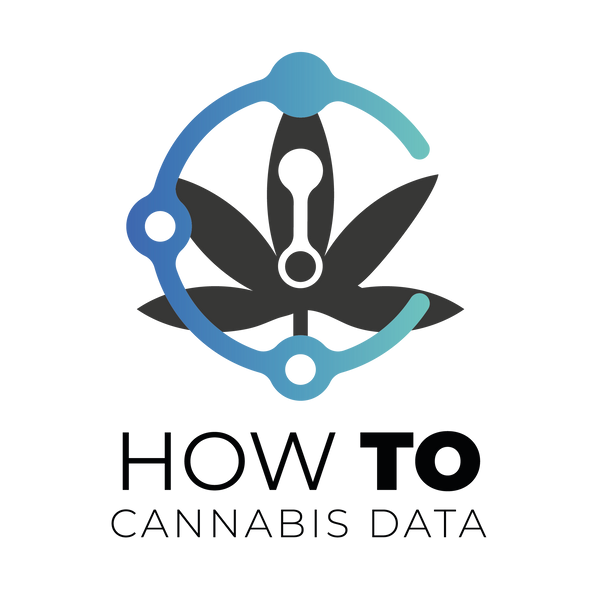As the cannabis industry continues to flourish, dispensaries face the challenge of managing and organizing vast amounts of customer data efficiently. This is where Customer Relationship Management (CRM) software specifically designed for cannabis dispensaries comes into play. In this blog post, we will provide an overview and review of cannabis dispensary CRM software, diving into its data layers, software operations, features, and the expected reporting capabilities.
What is Cannabis Dispensary CRM Software:
Cannabis dispensary CRM software serves as a centralized platform to capture, analyze, and leverage customer data to enhance the dispensary's operations, marketing efforts, and overall customer experience. It allows dispensaries to streamline their processes, improve customer engagement, and drive business growth by leveraging valuable insights derived from data analysis.
These are unlike other CRM tools as they have to be set up inline with state cannabis regulations. For example, Massachusetts doesn't allow loyalty points to be redeemed for cannabis goods. This has to be a structural element of the dispensary CRM software to ensure they comply with local regulations.
Enough about cannabis regulatory qualms, this post outlines the various data layers and data types housed and synthesized by a dispensary CRM software.
Data Layers in Cannabis Dispensary CRM Software:
1. Customer Data:
CRM software collects and stores customer information, including contact details, demographics, purchase history, preferences, and loyalty program participation. This data layer enables dispensaries to gain a holistic view of their customers, tailor marketing campaigns, and personalize customer experiences.
2. Inventory and Product Data:
Cannabis CRM software integrates with your dispensary point of sale software that tracks inventory, tracking product availability, pricing, and historical data. This data layer is informed by the point of sale as the data source, but it does facilitate and inform better inventory management.
3. Sales and Transaction Data:
CRM software records sales transactions, including purchase details, quantities, and associated customer information. This data layer enables dispensaries to track sales performance, identify popular products, and generate insights for inventory planning and targeted promotions.
4. Compliance and Regulatory Data:
Given the highly regulated nature of the cannabis industry, CRM software often includes features to capture and manage compliance-related data, such as customer age verification, medical patient status, and adherence to state-specific regulations. This layer ensures dispensaries operate within legal boundaries and simplifies compliance reporting.
What Should the Cannabis Dispensary CRM Software Actually Do?
These functions of the dispensary CRM software need to be inline with your local cannabis regulations. Sales people and marketers will claim they can accomplish all your regulatory needs, but it is your job to really know your regulations and validate the software operates inline with those regulatory requirements.
1. Data Collection and Integration:
CRM software captures data from various sources, such as point-of-sale (POS) systems, loyalty programs, and online platforms. It integrates with these systems, ensuring seamless data flow and eliminating the need for manual data entry.
2. Data Organization and Management:
Cannabis CRM software provides tools to organize and manage customer data effectively. It allows dispensaries to segment customers based on specific criteria, create customer profiles, and maintain accurate records for marketing and communication purposes.
3. Automation and Workflows:
CRM software streamlines workflows and automates repetitive tasks, such as sending personalized emails or text messages, scheduling follow-ups, and generating reports. Automation saves time and enhances operational efficiency, enabling dispensaries to focus on customer interactions and strategic initiatives.
Key Features of Cannabis Dispensary CRM Software:
Customer Engagement:
CRM software enables dispensaries to engage with customers through targeted email campaigns, loyalty programs, and personalized offers. It facilitates two-way communication, allowing dispensaries to gather feedback, address concerns, and nurture customer relationships.
Loyalty Programs and Rewards:
Dispensary CRM software often includes loyalty program features to incentivize customer loyalty. It tracks reward points, offers exclusive discounts, and provides a seamless redemption process, fostering customer retention and advocacy.

Regulatory Tip: As noted above, this will require you validating that these programs and rewards are in line with state cannabis regulations.
Marketing and Promotions:
CRM software assists dispensaries in designing and executing effective marketing campaigns. It provides tools for creating personalized content, managing customer segments, and tracking campaign performance. This feature empowers dispensaries to drive sales and increase brand awareness.
Analytics and Insights:
Cannabis CRM software generates comprehensive reports and analytics, offering dispensaries valuable insights into customer behavior, sales trends, and marketing effectiveness. These insights aid in data-driven decision-making, identifying opportunities, and optimizing operations.
Expected Reporting Capabilities:
1. Sales Performance:
Dispensary CRM software generates reports on sales performance, including revenue, average transaction value, and product popularity. These reports help dispensaries analyze sales trends, optimize pricing, and identify opportunities for growth.
2. Customer Segmentation and Demographics:
CRM software provides reports on customer segments and demographics, allowing dispensaries to understand their customer base better. This information helps tailor marketing strategies, product offerings, and customer experiences to specific target audiences.
3. Campaign Effectiveness:
CRM software measures the success of marketing campaigns by providing reports on email open rates, click-through rates, and conversion rates. Dispensaries can evaluate the effectiveness of their campaigns and make data-backed adjustments for better results.
4. Compliance Reporting:
CRM software generates reports on compliance-related metrics, such as age verification, medical patient sales, and adherence to regulatory requirements. These reports ensure dispensaries can demonstrate compliance to governing bodies.
Cannabis dispensary CRM software serves as a vital tool for dispensaries to effectively manage customer data, enhance customer experiences, and drive business growth. With robust data layers, streamlined operations, key features, and expected reporting capabilities, CRM software empowers dispensaries to make data-driven decisions, engage with customers, and optimize their operations. By adopting a cannabis CRM solution, dispensaries can unlock the full potential of their customer data and stay ahead in the competitive cannabis industry.

